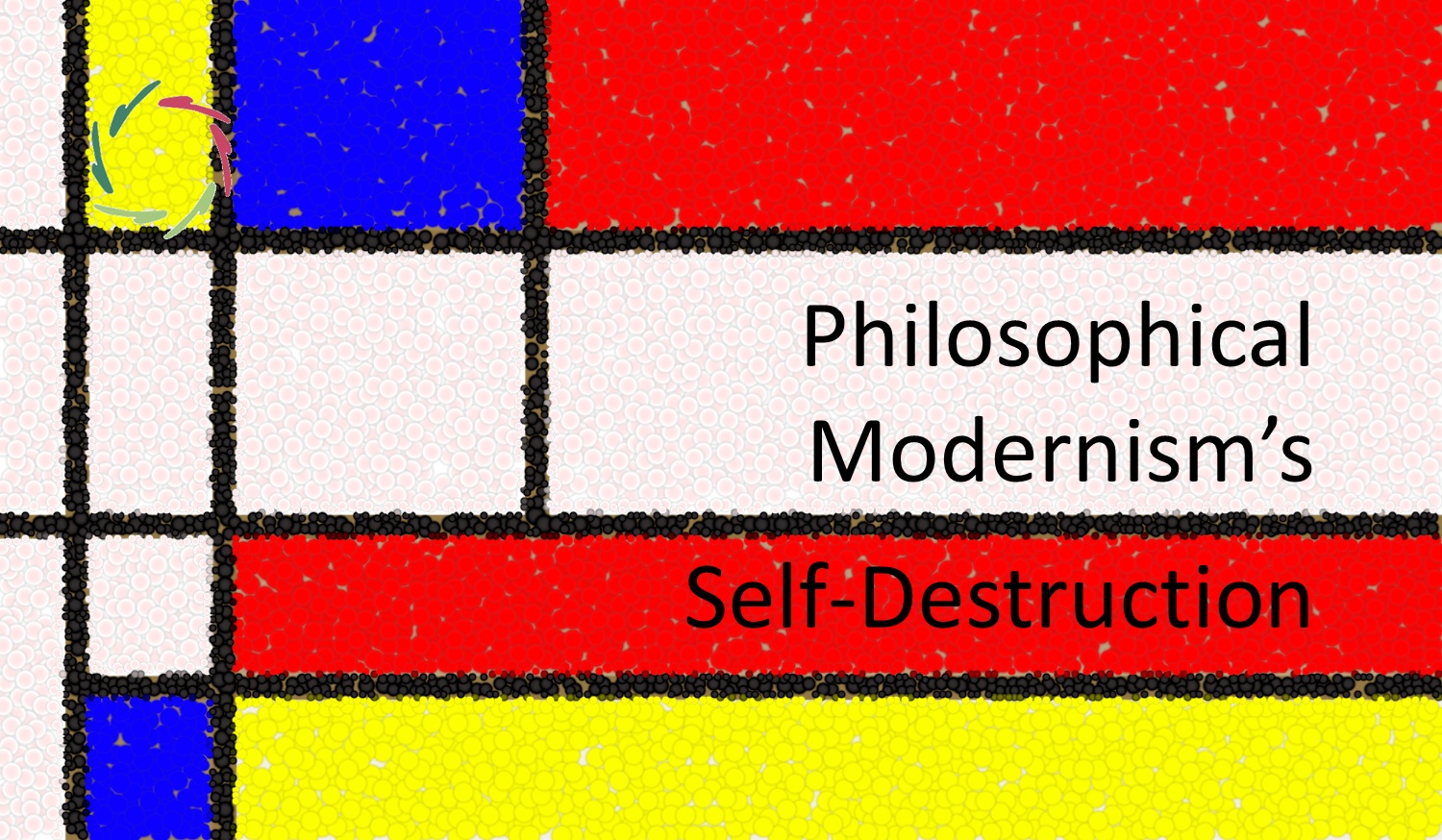Philosophical Modernism’s Self-Destruction

Philosophical modernism, emerging prominently in the late 19th and early 20th centuries, sought to challenge and redefine previous intellectual traditions. While it produced valuable progress in art, literature, and thought, its focus on rationality and surface-level analysis often came at the expense of depth.
This imbalance eventually led to its decline and self-destruction. This blog is a detailed exploration.
The focus on rationality
Modernism was deeply influenced by the scientific and industrial revolutions, which emphasized objectivity, empirical methods, and measurable outcomes. Philosophical modernism adopted similar principles, focusing on:
- Objective understanding: Reducing complex phenomena to simple, analyzable parts.
- Rejection of metaphysics: Moving away from introspective and metaphysical inquiries in favor of observable, material realities.
- Autonomy of reason: Valuing rationality as the supreme tool for human progress, often to the exclusion of emotions, intuition, and non-conscious processes.
While this emphasis on rationality advanced disciplines like science and technology, it sidelined the richer, deeper layers of human experience. Concepts like meaning, interconnectedness, and inner growth were treated as secondary, if not irrelevant.
Self-destruction of philosophical modernism
Modernism’s decline stemmed from its inherent contradictions and inability to integrate the full spectrum of human experience. Some key reasons for this self-destruction include:
- Over-reductionism: By reducing complex human phenomena to their simplest components, modernism often ignored the emergent properties of interconnected systems—particularly in the realms of mind, meaning, and culture. This led to an overly mechanistic view of humanity.
- Disconnection from depth: Modernism largely overlooked the subconceptual, non-conscious dimensions of the mind, which play a crucial role in shaping perceptions, emotions, and decisions. This omission left it ill-equipped to address deeper existential and societal challenges.
- Relativism and fragmentation: In its later stages, modernism evolved into forms of relativism, where the pursuit of universal truths was abandoned. This fragmented intellectual inquiry, undermining its foundational goals of clarity and progress.
- Crisis of meaning: Modernism’s rejection of traditional metaphysical frameworks, combined with its focus on surface-level progress, contributed to a sense of alienation and a “crisis of meaning” in the modern era.
Critical philosophical voices within modernism
Several philosophical modernists were deeply critical of modernism itself. These thinkers highlighted its limitations, contradictions, and impact on human experience. Their critiques laid the groundwork for postmodern and integrative philosophies:
Friedrich Nietzsche (1844–1900)
[The categorization of Friedrich Nietzsche as a ‘philosophical modernist’ is nuanced and depends on how modernism is defined.]
- Critique: Nietzsche viewed modernism as embodying a “nihilistic” tendency — a loss of higher values and meaning in favor of shallow materialism and instrumental rationality.
- Key idea: He argued that modernism’s rejection of metaphysics and religion created a cultural and existential void that rationality alone could not fill.
- Relevance: Nietzsche’s concept of the Übermensch and his call to “revalue all values” sought to transcend modernism’s constraints and reestablish a profound sense of purpose.
Søren Kierkegaard (1813–1855)
- Critique: Kierkegaard opposed the impersonal nature of modern systems, which prioritized collective rationality over individual depth and authenticity.
- Key idea: He emphasized the “leap of faith” as a counterpoint to excessive reliance on reason, highlighting the alienation of individuals in a world defined by abstract thinking.
- Relevance: Kierkegaard’s existentialism anticipated the challenges of modernism and offered a path toward personal depth and responsibility.
Martin Heidegger (1889–1976)
- Critique: Heidegger critiqued modernity’s technological mindset (Gestell), which reduces the world, including human beings, to resources for manipulation and exploitation.
- Key idea: He called for a ‘return to being,’ emphasizing a deeper connection to existence beyond modernism’s focus on surface-level progress.
- Relevance: Heidegger’s philosophy of Dasein and critique of technological enframing resonate with the need for depth and awakening.
Walter Benjamin (1892–1940)
- Critique: Benjamin examined the commodification of culture and the alienating effects of modernity, particularly through mass production and technology.
- Key idea: In The Work of Art in the Age of Mechanical Reproduction, he argued that modernism eroded the ‘aura’ of authentic human experience by prioritizing replication and surface-level consumption.
- Relevance: His critique of cultural modernism highlights the need to reconnect with deeper, non-material values.
Max Weber (1864–1920)
- Critique: Weber described modernity as characterized by the “disenchantment of the world,” where rationalization and bureaucratization stripped life of more profound meaning and spiritual significance.
- Key idea: He warned of the “iron cage” of modern life — a state of dehumanizing rationality and rigid systems.
- Relevance: Weber’s work underlines modernism’s failure to address the human need for meaning beyond functional efficiency.
T.S. Eliot (1888–1965)
- Critique: In works like The Waste Land, Eliot depicted modernity as spiritually barren, fragmented, and disconnected from tradition and inner depth.
- Key idea: Eliot’s exploration of existential emptiness challenged modernism’s shallow materialism.
- Relevance: His works emphasize the need for cultural and spiritual renewal in response to modernist disintegration.
Integration of depth and rationality
Philosophical modernism’s limitations reveal the need for an integrative approach that balances rationality with depth. Depth-oriented traditions – whether in Eastern philosophies, postmodern critiques, or emerging disciplines like neurocognitive science – highlight the importance of:
- Acknowledging subconceptual processing: Recognizing that much of human thought and behavior is shaped by dynamic, non-conscious patterns.
- Restoring meaning and connection: Reintegrating existential concerns, interdependence, and inner growth into broader frameworks of progress.
Toward a new awakening
Modernism’s self-destruction serves as a cautionary tale: rationality without depth leads to fragmentation, alienation, and unsustainability. A new awakening, blending Enlightenment ideals with depth-oriented approaches, could provide a more holistic vision for human progress. This is where AURELIS and similar philosophies find their relevance, offering tools and insights to bridge the gaps left by modernism.


